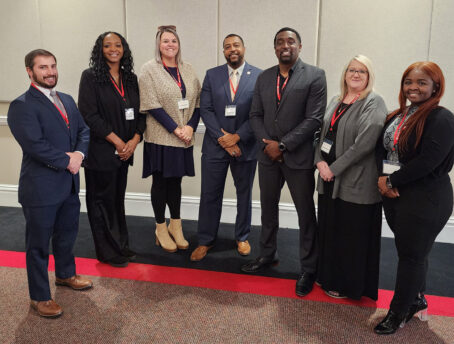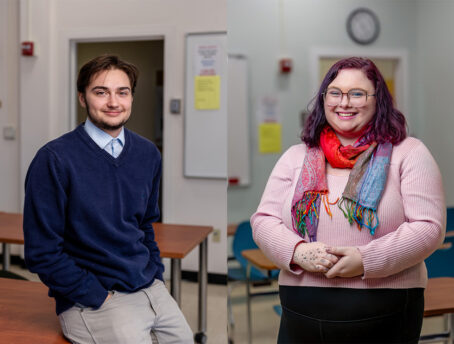Thank you to Melissa Sadorf at ARSA for connecting us with this story. In addition to being an affiliate state of the National Rural Education Association, Melissa supports our Arizona Regional Hub headed up by the Arizona University Rural Resource Center.
Christina Musselman is a first grade teacher in rural Lake Havasu City, Arizona. We had the chance to meet Christina as part of our Policy Playbook project in Arizona, and are thankful for her willingness to share her story. Now in her 19th year of teaching, she feels truly connected to her community through the relationships she’s built over time.
Christina grew up in San Diego, and moving to a rural place when she was in high school presented quite a shock. However, she now believes that she was always meant to live and teach in a rural place. Part of that feeling came from having the opportunity to work in a preschool lab during her sophomore year of high school:
“That was where I found my niche. That's what connected me to this community and got me to where I didn't feel so alone - because I felt very alone, not having my friends there at that age. I stayed in that program through senior year.”
This experience led her to pursue a degree in education, and she saw some familiar faces along the way:
“I went off to college at the University of Nevada Las Vegas, and when I was nearing graduation, I chose to student teach in Lake Havasu. Working in Las Vegas is a big adjustment; the hours were crazy. It was great for a college student, but not for having a child and trying to student teach. I got assigned to Oro Grande Elementary, and the first few days that I was there I ran into one of my preschool students and her mom. I just remember at that moment feeling connected because there were several of the students that I had had at the preschool there.”
Christina now teaches at Starline Elementary School, which serves 650 K-6 students. She enjoys the ongoing connection to students, even after they leave her classroom and grow into adulthood.
“I was hired [at Starline] on the 40th day of school. This boy Roger was in my class, and I built a relationship with him and his family. He needed extra support, and I gave that extra support, being the new teacher, not really necessarily knowing what I was doing exactly at the moment. Fast forward 13 years later, he's now my paraprofessional working in my classroom, working with students on reading, which was something that he needed support with. He has now been teaching for three years. That's our story, and this community’s story, just being connected to people. That's what I love about being a rural teacher.”
Relationships are the key to success in Christina’s classroom, a lesson she learned from her own teachers:
“It wasn't necessarily about what my teachers taught me but how they made me feel. I knew that regardless of what I did in my career as a teacher, I needed to reach out to families, and make sure that I see them and I hear them, and that they feel reciprocated in that relationship, that we're a team. I build a relationship with every single family and it's not optional.”
She also emphasizes the importance of making sure that all of her students feel comfortable and included in the classroom, particularly in her library:
“My library is very inviting to children. I have flexible seating, and there are stuffed animals in there. In my experience telling children that they're reading to somebody really gets them engaged in the reading process, so oftentimes they are reading to a buddy, but it's a stuffed buddy. The heart of my classroom, every year, is that space.”
“The main diversity that our students see at school is through the needs of diverse learners. I teach at a school that has an autistic program, and I feel like that's a unique piece at our school. Our students are aware of what autism looks like, and it's not just this label. They get to see that, ‘Oh, they function just like us; they might do this little piece a little bit different.’”
All of these aspects - connection to families, literature, and inclusivity - tie into Christina’s favorite classroom unit:
“We write a student Treasure Book in my classroom, and it's a published book we send it off to a publisher. They publish it and the families are able to purchase this book. I now take pictures of every page and I publish it as a link so my families online can share it with their grandparents.”
The Treasure Book project is not the only way in which Christina goes above and beyond for her students and community. She was named a 2023 Arizona Teacher of the Year Finalist, and participated in Rural Schools Collaborative’s Policy Playbook Borderlands Rural Teacher Caucus. The Rural Teacher Caucus experience changed her view on rural education at a state level, particularly when it comes to representation:
“It was an interesting opportunity to talk about what rural is to us, and in that process I realized that Havasu is very rural. We're away from the big city, we don't have all the access to these things, but then some of my [caucus] counterparts only have 38 children in their school. It was really eye-opening for me to understand. It was about us coming together, talking about issues that we have in our own community, and then thinking about, at a state level, how do we get more representation for rural schools?”
“My specific passion project was to get representation at the state level, where every conversation that we're going to talk about policy, there should be somebody who has either worked in a rural school or is currently representing rural schools in that area. I taught at a Title I School for 13 years, and it was really interesting to be in the same district and realize what's different about being a title school and not. It's amazing what resources we don't get, even a mile down the road.”
For Christina, the biggest advantage of being in a rural place is how the community supports one another. By working together, teachers and community members achieve amazing things:
“I don't always see myself personally as the leader in the room because I want to support everybody, and I want to see everybody succeed. I don't need the kudos for it, but at the same time I'm told time and time again that others look to me as that leader for them. Rural is a unique experience because of the connections that I have as a teacher and living in this community. When I look out my window, I see people communicating amongst one another, collaborating together, being a team. At the end of the day, we all have a common goal.”
Through 19 years of teaching, Christina has made an impact on countless students and community members. Reflecting on her time as an educator, Christina had the following advice for anyone who wants to teach in a rural place:
“You can never put too much emphasis on the relationships that you are making, big or small. You never know how much that's going to come around and come full circle. I supported a student in the first grade classroom, not realizing that later I was going to teach them again. That person might be a parent of mine later on, that I interact with at the grocery store. Never overthink a relationship and always really be true to yourself, because those relationships are going to come back to you in some way.”
We are grateful to Christina for sharing her story with us about her experience as a teacher in rural Arizona! If you would like to share 30 minutes of your time for an interview, please reach out to us at info@ruralschoolscollaborative.org. The I Am A Rural Teacher campaign is a collaborative effort with the National Rural Education Association and made possible through a grant from the Bill & Melinda Gates Foundation.




